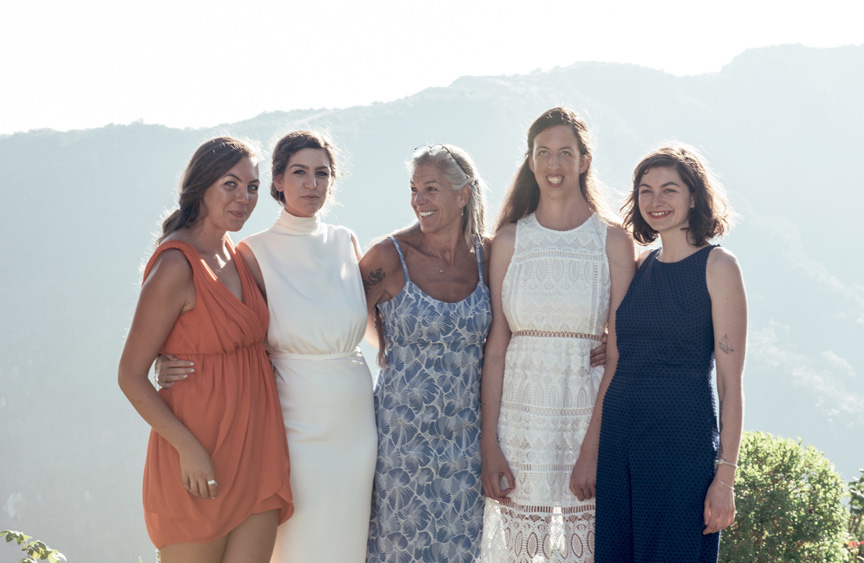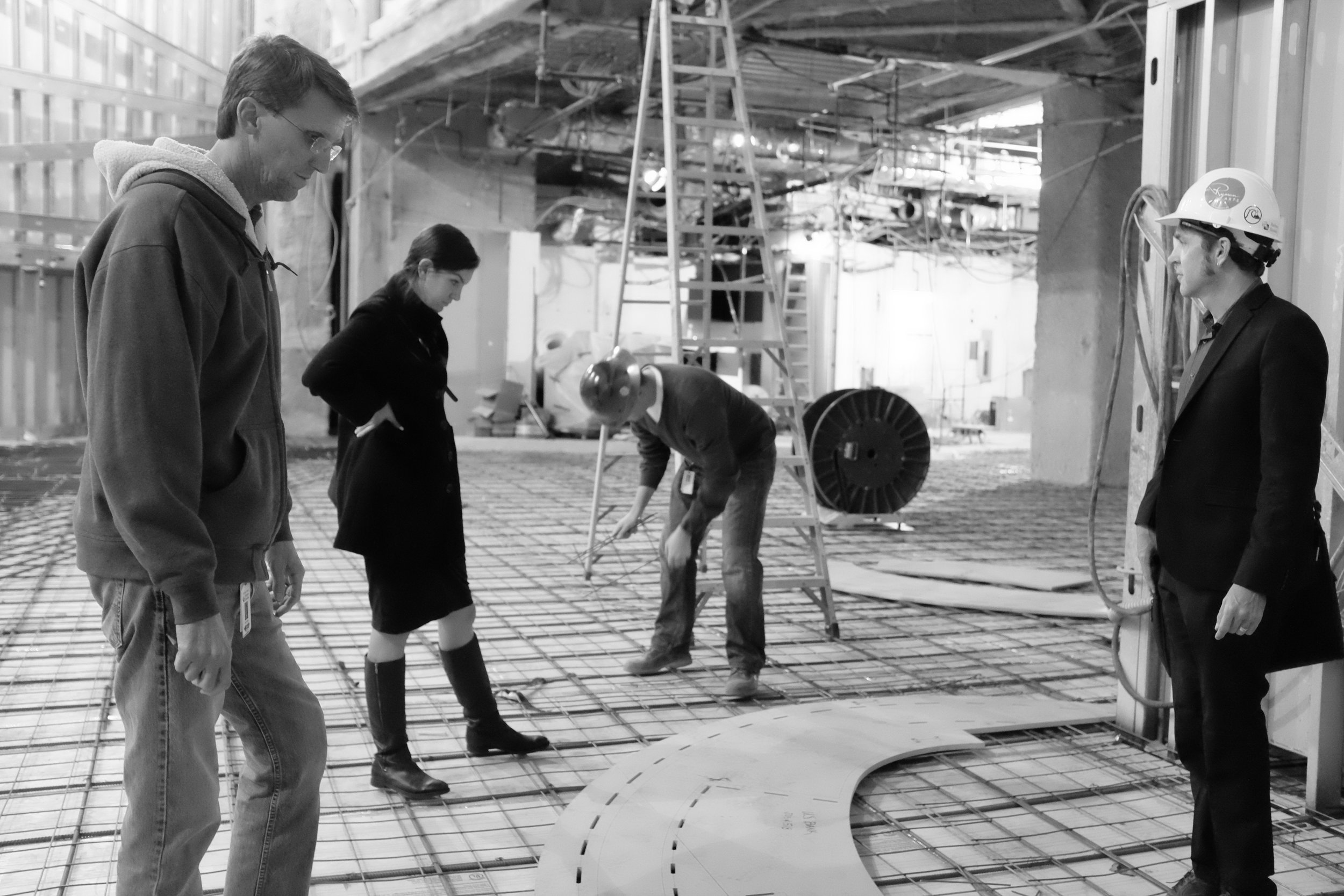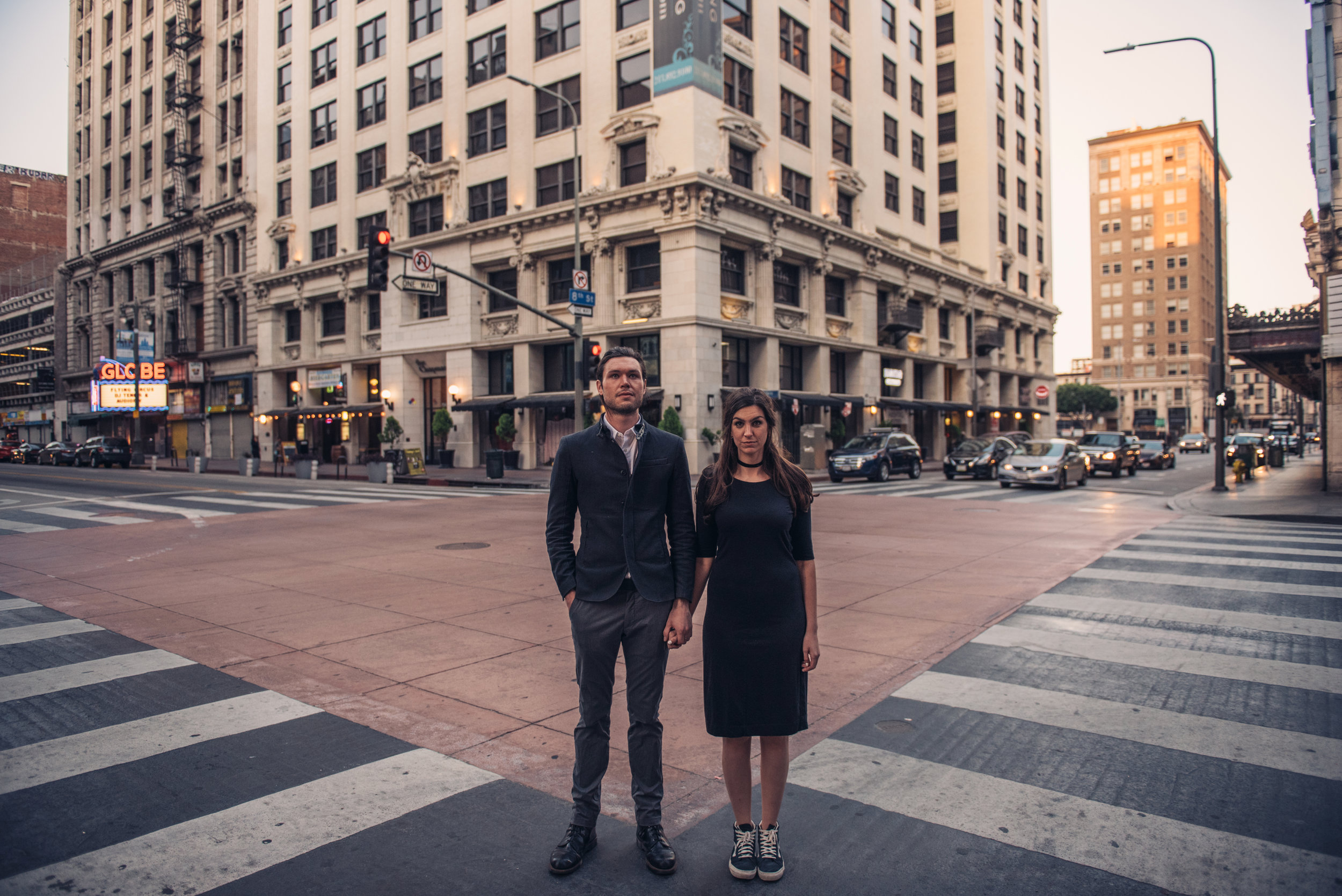Leaving a Legacy: Aaron Gensler on Embracing Her Roots and Going Out on Her Own
By Julia Gamolina Aaron Gensler is a designer, activist, educator and thought leader based in Los Angeles. She recently founded GenslerClipp, an Architecture, Research and Design practice, and has previously held design positions at a diverse array of firms including Gensler, DS+R, and Active Social Architecture (ASA). In her past lives she exhibited as an artist, dabbled in the construction industry, and co-founded a theatre company. Aaron holds a Master of Architecture from Cornell University and a Bachelor of Arts from Middlebury College. In her conversation with Julia Gamolina, Aaron talks about being born into the legacy of one of the biggest architecture firms in the world, and the experiences and decisions that have taken her away, through, and beyond it.
I don’t think I need to ask how your interest in architecture developed. What was it like growing up with and at Gensler?
[Laughs] I should explain: my grandfather, with the help of my grandmother, founded Gensler, my dad was the CEO until very recently, and my uncle runs the Boston office. I did grow up with and at Gensler - I’d go to work with my dad on the weekends, use his computer, and play hide and seek in the materials library. Models make great dollhouses! Gensler also has a children’s Christmas party every year, and in the early days, my grandfather was Santa Claus. There’s a picture of me sobbing on his lap at my first party. At some point my grandfather stopped being Santa Claus, and year by year each Christmas party I went to got a little bigger.
Before I even pursued architecture, I worked as an intern at Gensler too many times, from making models and assembling sets in the print room, to helping with administration and working in the marketing department - I got to see what was happening at the firm at large. My family also moved around when my dad worked at the firm. We saw offices in different countries and lived abroad, which allowed us to understand the world at a very young age and made my nuclear family extremely close.
What did you learn about architecture from these experiences?
The professional practice of architecture was very familiar to me early on. Gensler is an amazing design firm, but beyond that, my grandfather and father really excel at the business of design. The idea that you can be a designer and still have humane working hours, make a living wage, and be respected has been really important to them. My dad, who has an MBA from Stanford, gave me lessons on the business of architecture in exchange for me driving him to work when I first started at Gensler. My grandfather also recently wrote a book on the professional practice side of things, “Art’s Principles: 50 Years of Hard Learned Lessons in Building a World Class Professional Services Firm.” He quotes himself to me all the time [laughs].

Apart from Gensler, what else has defined your roots?
The strength and power of women is something that has always resonated deep in my core. I’m one of four incredible sisters and I went to an all-girls school for a great deal of my education. My grandmothers have been important guides in my life and I also can’t speak highly enough about my mom. She’s a therapist - kind, annoyingly smart - and she’s always stressed the importance of attention for others and has made me believe that my knowledge is my power.

What did you study when you went to Middlebury?
I went thinking I would do the Engineering 3/2 program with Dartmouth, but my 8am physics class was painful and I fell in love with scenic design. My focus became theater design and directing, which is basically architecture with a side of suspended disbelief and more reading. I loved that you could create your own worlds in theater. I was also an art major, and both art and theater allowed me to develop my artistic voice. When I look back, I see that I was trying to avoid architecture, but only just side-stepped it a little.
Why were you trying to avoid architecture? Over-saturation?
I avoided it in part because Gensler is a huge company, and it’s a lot to live up to. How can you possibly compare to someone in your family who is an architect and has created one of the biggest architecture firms in the world? Also as an outsider, I didn’t think it was the most appealing lifestyle - now as an insider, I know it is not [laughs]. I had and have a lot of interests, and I only later realized that the great thing about architecture is that it can encapsulate all of them.
How did you finally decide to pursue architecture?
I graduated from college and entered the workforce as the world went into a recession. I worked as a temp and a freelance designer and formed a theater company with my friends - we produced a rock musical satire called Love Money at the Fringe Festival. After a while, I realized that I didn’t want to be in New York anymore and that the only thing more exciting than making fake worlds was to make real ones. I wanted to be an architect all along; I just couldn’t admit it to myself. I finally decided that I needed to go to architecture school and I moved to San Francisco and got a job as a project engineer at a construction company while applying. I had great mentors there, though most of my colleagues in construction thought I was totally insane for going into architecture.
You started working at Gensler just a few weeks out of architecture school. How did you make the decision to go straight into the family business?
It was a tough choice for me. I had different experiences that I loved while I was at Cornell – interning at DS+R and at ASA in Rwanda - but my dad had already started talking about retiring and it was important for me to take the opportunity to work at Gensler while my father and grandfather were still there. My dad has since left Gensler, and I am thankful for the time I had with him.

You were at Gensler for almost four years. What was the experience like?
To me, Gensler is a university, not just because I learned so much, but also because it’s massive and everyone’s experience is a little different. There are different studios, much like different majors, with research, collaborations, extra-curriculars, and lots of drinking [laughs]. I did so many different things during my time there: I helped universities with research, advocated for more gender equity in architecture, helped a school that targeted foster youth in Los Angeles become real, and built structures that are seen and used by millions of people. Also, because Gensler is enormous, you can find your community. I found mine and got to work with incredible people.
With my last name however, I had to present myself twice to most. First in their expectation of who I am as a Gensler, and then again after I’ve proven that I belong and that my work, talent, drive and personality are what allowed me to succeed at the firm. I was fueled by an amazing group of collaborators and mentors and I also worked my ass off.

You left just a few months ago. What were your reasons for leaving?
I have always played with the idea of starting my own practice and the desire was only getting stronger. I realized that now is the most opportune time in my career to take some calculated risks. Leaving Gensler was not easy; over my four years there I created some amazing relationships with mentors, colleagues, friends, and was able to work on dream projects while developing the practical and professional education that I needed. Working at Gensler was more than a job - as hard as it was to tell my mentors that I was moving on, it was terrifying to tell my grandfather that I was leaving the place he created and loves with his whole heart. He was sad but is supportive - my whole family has been incredibly encouraging. Art was my age when he started Gensler… that’s a good sign, right?
What are you up to now?
Now that I oversee my own livelihood, I am hustling a lot of the time – cue Beyoncé. I am working on some great projects: a house for a vineyard in Northern California, a renovation that looks over the Pacific Ocean, a hideaway in the desert, and an installation and a pop-up museum in LA. I am also teaching a class at Santa Monica College and working with remarkable people - Elizabeth Wendell, Nels Long, and Micheal Rotondi - to create a community that supports small scale practitioners in our field. I am only a few months into the world, but keep your eye on me.
Time for some reflection - what have been some highlights?
There aren’t a lot of other feelings like seeing people living in and enjoying the spaces you designed. I worked on a small elementary school, and when I went over there with a colleague to do our punch list, the students prepared a song to say thank you. One seven-year-old girl told me that she wanted to be an architect when she grows up. I was so touched. Another example is when, along with other talented young designers at Gensler, we put together a design concept for a grant for Rise High, a school that focuses on students who are not served by the current education model. The school was awarded the grant, and though we were only involved in a portion of the grant process, I feel privileged that I played a part in making this happen and that this school now exists.
There truly is power in design at all scales. How you design a bathroom could make a difference to a couple’s relationship! I know this one well and this is another highlight - my husband is also an architect. He’s so unbelievably talented and wonderful, and I feel so lucky to share a vocabulary and an interest with him. We motivate, challenge, inspire and support each other, and because we are architects, we understand each other’s long hours.
One last highlight is Los Angeles. I’ve fallen for it. LA is just getting out of its adolescence, and as a creative professional, it’s an incredibly exciting place to be. The city is full of treasures - at one point I worked on a Julia Morgan historic renovation and having the opportunity to work with one of your heroes is incredible even when they are no longer alive. In the near future, LA will steal the center of the universe away from NYC. My husband calls me a Los Angeles Evangelist, and I am. As an architect, I'm glad to contribute to this city during its renaissance.

What has been your general approach to your career?
I’ve recognized that mastering architecture takes a long time. There is comfort in knowing that I’m not going to be at my best until I’m older, that I have not peaked, and that I’m continually learning and evolving and so is the work I’m doing - each project helps the next.
I truly think architecture can inspire social change and that design affects the world. Sometimes I pinch myself knowing that I get to do this as a career and that people pay me to do it, but then some days can be painful. When you’re passionate about what you do, there are heartbreaks, but trying to understand, entertain, and advocate for users has really allowed me to feel full.
What are you looking forward to in five, ten, fifteen years from now?
While at Gensler I could see five, ten, or fifteen years into my future, because there were people around me that were doing it. What is exciting about going out on my own is that there are so many possibilities. My plan is still vague due in large part to the sheer number of variables beyond our control that shape the course of events and careers. I know my general direction, but most of all I know that I want to enjoy the ride. Stay tuned.


